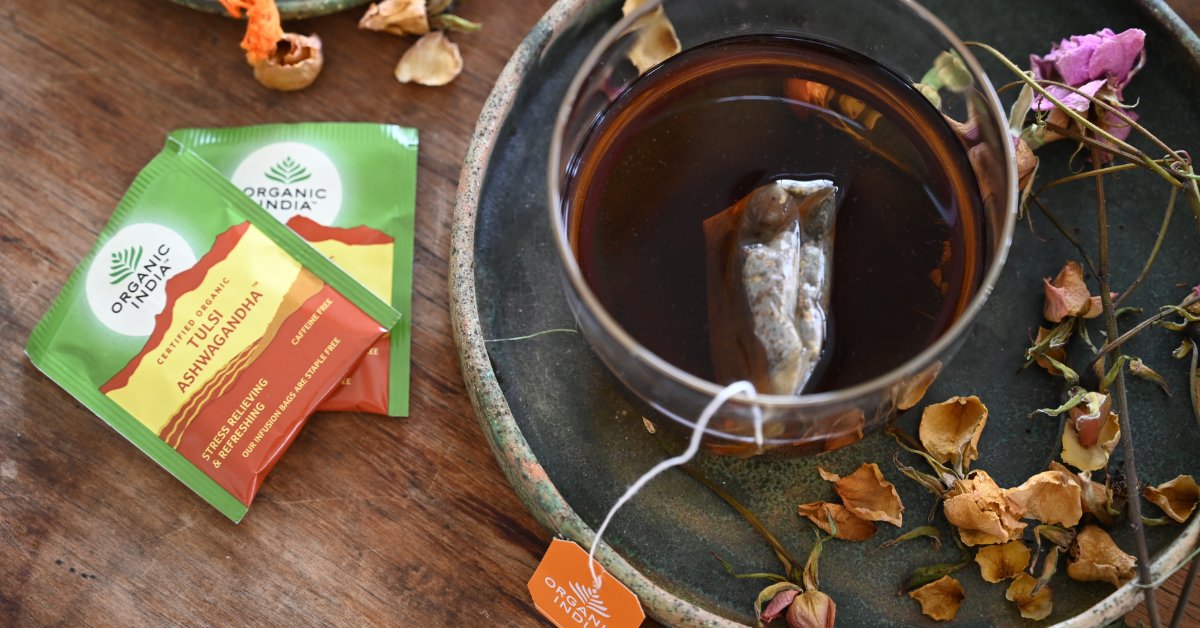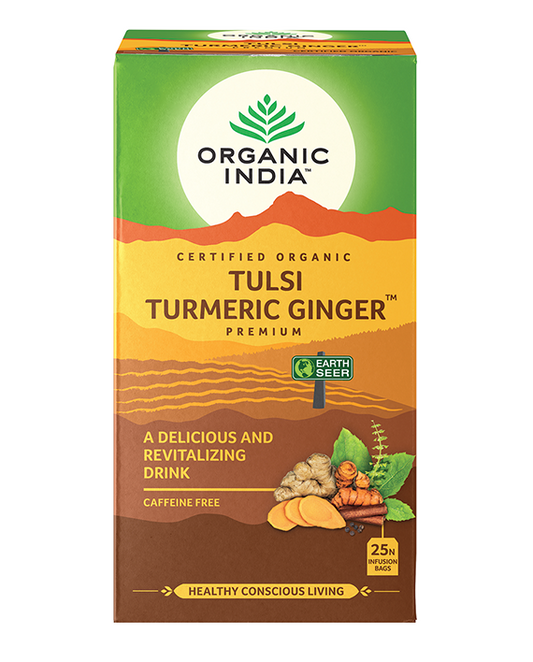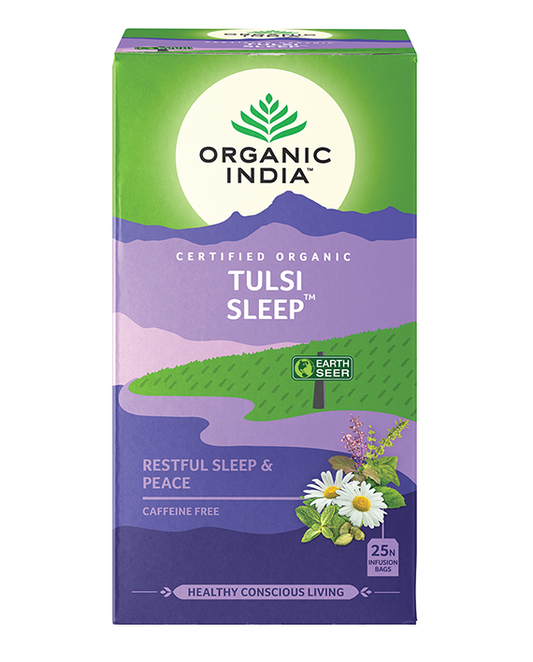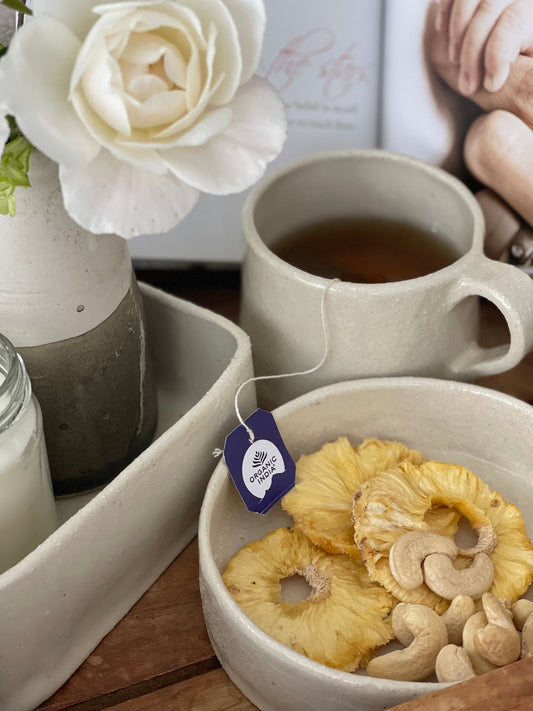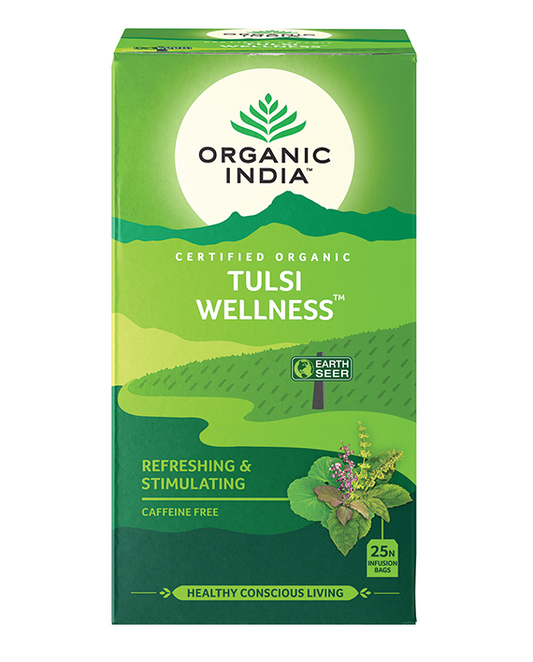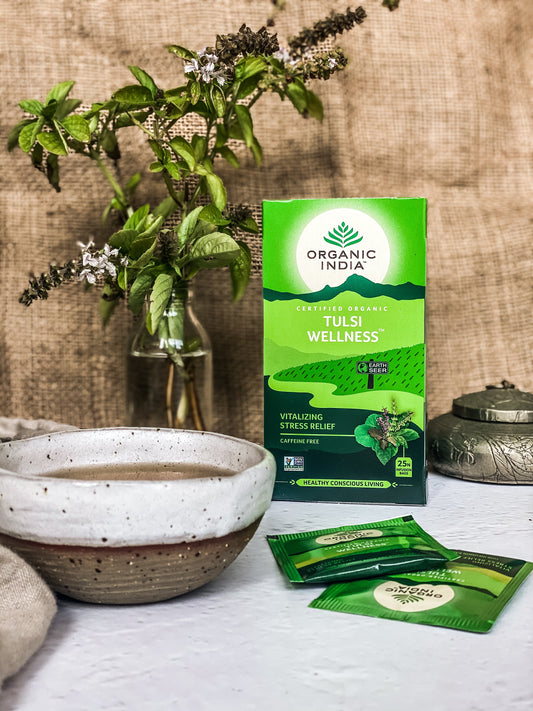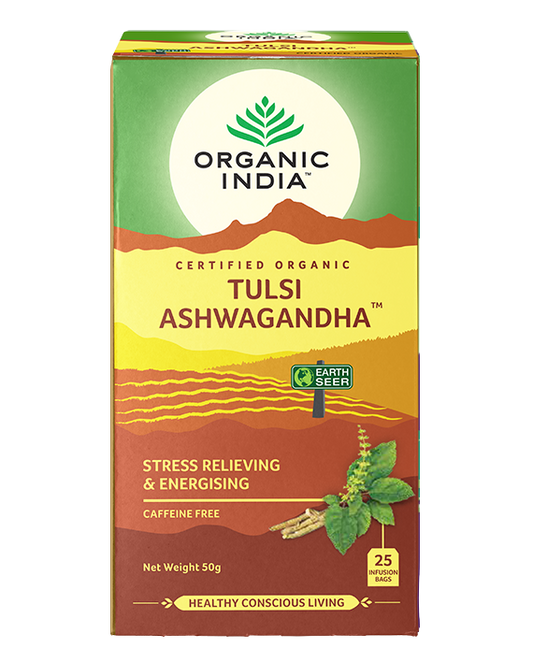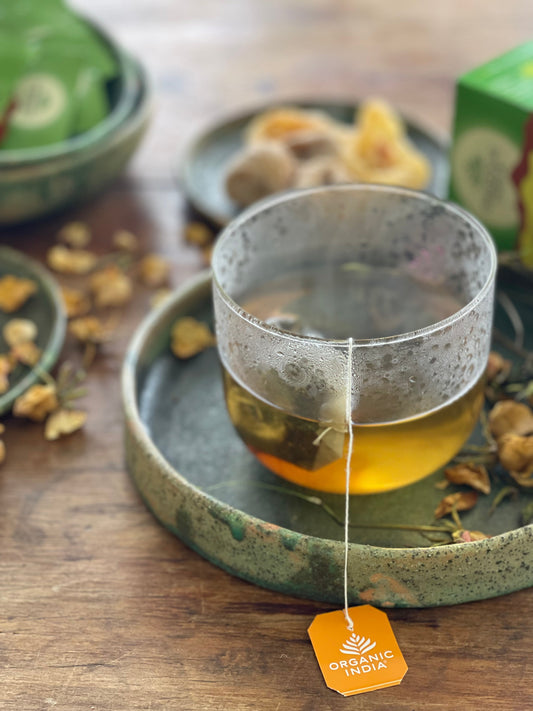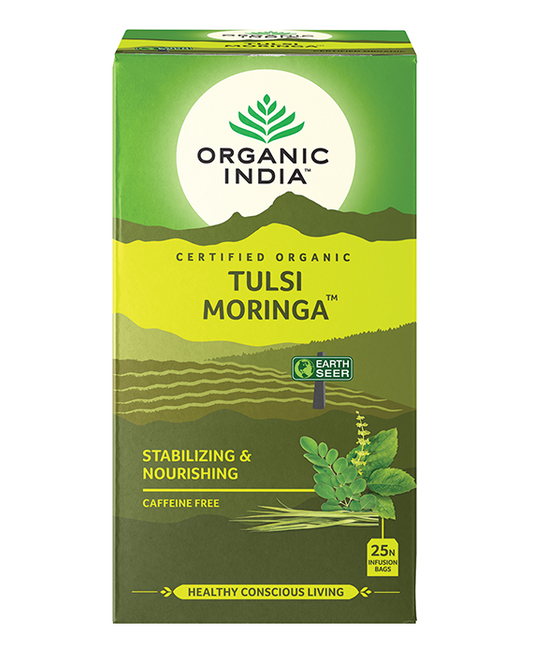‘Every good quality is found in ginger’
Indian Proverb
Why does Ginger deserve its place in your home and medicine cupboard? Not only does it provide a warming and comforting zing to liven up your teas and foods but it also hosts a range of health benefits. Is every good quality found in ginger? Let’s find out…
First off, ginger can be labelled as one of nature’s many paradoxes. Its pink and white buds bloom into delicate, yellow orchid-like flowers. Pale and dainty on the top, one would never guess that under the ground the rhizome is so pungently aromatic and tantalisingly spicy. Thank goodness someone looked beyond the bloom…
Where does ginger come from?
The ginger that we consume either raw, in powdered form or in tea derives from the rhizome – the stem of the plant. Ginger belongs to the Zingiberaceae family and is related to turmeric, cardamom and galangal. Ginger originated in South Asia and was exported to Europe in the First Century AD becoming a firm favourite of the Romans. In 2013 it was estimated that 2.1million tonnes of ginger were produced with one-third of this coming from India.
Ginger has since become used world-wide. Its uses in cookery range from Indian curries, Chinese stir-fries and Korean dishes to European soups, wines and in cakes and sweets. It can be preserved and pickled in vinegar or sherry, candied as a sweet and perhaps most commonly used as a family favourite in a soothing, warming tea.
Shopping for and cooking with ginger
When you’re shopping for fresh ginger you want to look for a plump and firm feeling rhizome with smooth skin. Discard any ginger that looks wrinkled and dry – this is past its best. Another way of checking whether it’s fresh is when you slice it. Ideally, you should see a pale golden flesh – no blue or grey tinge. If it’s really fresh you’ll also notice the juice seep out as you cut into it. If this is the case, try capturing it and use it in your recipe.
Ginger pieces we buy in shops and veggie markets are often larger than required. It’s perfectly acceptable practice to either break off a nub (a smaller piece that sticks out from the main body) rather than buying the whole thing. Alternatively, if you do buy more than you need, you can freeze the remainder.
In India, many chefs choose to cook ginger with its skin on. Elsewhere, the majority of people peel it off. For efficient peeling use a vegetable scraper, knife or the rounded tip of a teaspoon. You can then either chop, julienne or grate the ginger before adding it to your recipes.
Ginger can be used in many ways including in homemade drinks and teas. If this is the case it’s best to julienne the spice so that it can be easily sieved out after stewing. In other foods such as soups or stir fries, it can be grated using a cheese grater directly over the pot. Ginger’s spice works very well in collaboration with garlic and they are often ground up together into a paste for use in curries and warming, spicy sauces.
7 GINGER BENEFITS
But there is more to ginger. Benefits resulting from consuming ginger have been scientifically proven and many more studies are currently being undertaken. Here’s the latest:
1. Ginger can help digestive problems:
It may seem like an old wives’ tale but ginger has been proven to ease stomach problems like nausea, sea and morning sickness. A study by Stellenbosch University1 studied over 1,000 pregnant women using 1-1.5g of ginger a day and found that the symptoms of morning sickness were eased. Other studies also suggest a helpful link between nausea brought on by chemotherapy and taking ginger. It’s thought that gingerol, the active constituent of ginger, is to thank for the anti-nausea properties. Ginger is also a known anti-inflammatory as well as an antioxidant (more on that below).
2. Soothing sore muscles
If you suffer from muscle pain or soreness after exercising ginger has been proven to alleviate the symptoms. Patients who performed controlled elbow exercises took around 2g of ginger per day for 11 days. Researchers noted a reduction in muscle soreness and put it down to ginger’s anti-inflammatory properties.
Sufferers of osteoarthritis, a degenerative disease that attacks the joints, have also benefited from taking ginger. Scientists from the University of Miami reported patients with knee issues felt less soreness after taking ginger throughout their trial. Speaking to the Arthritis Foundation, the study’s lead author, Roy Altman, said: ‘Research shows that ginger affects certain inflammatory processes at the cellular level.’ So successful was the study that there is speculation that ginger may be used as a substitute for nonsteroidal anti-inflammatory drugs or (NSAIDs).
3. Anti-diabetic qualities
Another health benefit of consuming ginger, either raw or in tea, is its ability to lower blood sugar levels. Initial studies (4) show it has anti-diabetic properties which can potentially lower fasting blood sugar levels. Initial studies over a 12-week period found that ginger can improve HbAlc (this is a marker for long-term blood sugar levels) and lipoproteins – major players in heart disease.
4. Eases indigestion
Ginger’s soothing and calming properties are renowned. If you suffer from discomfort in the upper part of the stomach sipping ginger tea is particularly helpful. Indigestion is caused by the slow-release of the stomach’s contents whereas ginger actually speeds up the emptying of the stomach. This makes it an ideal tea to sip after a meal or at any time you are suffering.
Tea made with ginger also contains high levels of Vitamin C and magnesium, amino acids, trace elements and minerals which are beneficial to health, regardless of any indigestion. In warm weather, you can sip the tea before meals but if it’s cold you may enjoy drinking ginger tea throughout the day.
5. Takes the pain out of menstruation
Stomach cramps and aches are common place for menstruating women with 50% of them suffering all or some of these symptoms. Good news though, taking ginger has been found to be as effective in easing discomfort as a drug like Ibuprofen. Research published in the Journal of Complementary and Alternative Medicine (5) detailed a study where sufferers of menstrual pain, or dysmenorrhoea, took ginger for pain relief. The findings are great news, especially for those who prefer to use natural remedies.
6. Ginger’s links with inhibiting cognitive decline and Alzheimer’s
Alzheimer’s, considered the pandemic of the 21st century, currently relies upon pharmaceutical medicine to slow the symptoms. These drugs, however, regularly cause unwelcome side effects. A study published in the Indian Journal of Experimental Biology (6), show encouraging therapeutic results using 2g of extracted dried ginger which could mean it is used as a supplement to existing drugs.
Ginger is also thought to show preventative properties that include being able to inhibit oxidative stress and chronic inflammation, which are triggers of cognitive decline (of which Alzheimer’s is a result). The spice is also thought to have an effect on reaction times and memory.
7. May lower the risk of infections
Ginger’s antibacterial properties make it effective against respiratory infections and bacteria that can cause gingivitis and periodontitis. Drinking the tea regularly and swishing it around your mouth and/or using it as a gargle can fight off the bacteria.
So, taking us back to the proverb at the beginning of this article: Is every good quality found in ginger? Yes, it would seem so. Whether you take ginger for the warming pleasure given in the tea, for adding spice to your recipes or for the many health benefits it possesses, ginger, paradox or not, is truly a natural treasure.
